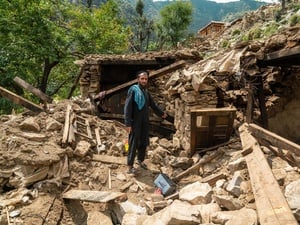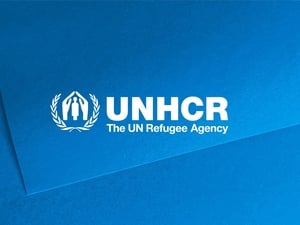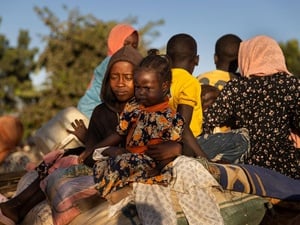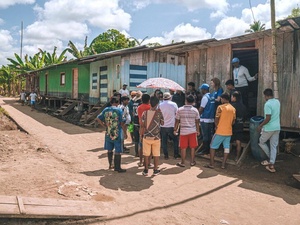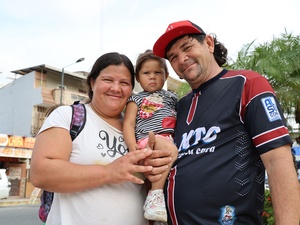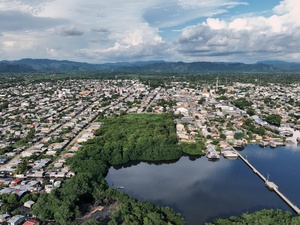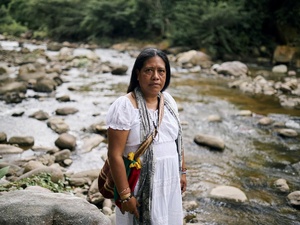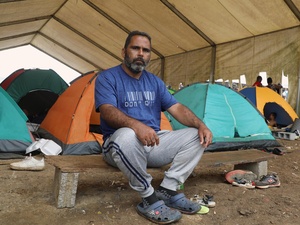UNHCR income-generating project gives hope to scores in Colombian town
UNHCR income-generating project gives hope to scores in Colombian town

Rosa shows off some of her creations.
CÚCUTA, Colombia, September 5 (UNHCR) - Five years after losing her home and father, Rosa* is rebuilding her life and feeding her family with the help of a sewing machine, some knitting equipment and the UN refugee agency.
The 35-year-old displaced Colombian uses these basic tools, plus skills handed down to her as a girl by her late grandfather, to produce garments, accessories and other creations of cloth and wool. Sales of her output in this city bordering Venezuela provide for Rosa, her husband, two children and mother.
"I make purses, belts, earrings, blouses and even bathing costumes. People buy my clothes and my mother helps me by selling them in Cúcuta," she told recent UNHCR visitors. "I cannot complain, added Rosa, one of 72,000 registered displaced people in northern Colombia's volatile Norte de Santander department.
She credits UNHCR with helping her get back on her feet after the trauma of flight from her home in the lower Catatumbo region, followed by six months as a refugee in the Venezuelan town of Guasdualito. UNHCR has helped scores of people in her settlement with income-generating projects - part of a wider initiative to assist Colombia's huge population of displaced people.
"We left our farm because my father was murdered. We were given 12 hours to leave the village," said Rosa. "When we came back from Venezuela we had the chance to stay in this small piece of land. It is now our home."
Norte de Santander is one of the most volatile regions in northern Colombia. It is plagued by fighting between rival irregular armed groups, drug cultivation and general crime. Rosa's father was a farmer and it is not clear why he was killed.
Rosa felt lost in Venezuela. "I was afraid to register because someone could recognize us," she said, reflecting the fears of many Colombian refugees who remain invisible to the authorities, living unprotected and in dire conditions in border zones.
Following a friend's advice, Rosa and her family returned to Colombia and sought refuge in one of the squalid settlements around Cúcuta for displaced people. Many of these sites lack decent housing, drinking water and adequate health and sanitation facilities.
Last year, things started to look up after UNHCR gave Rosa a sewing machine as part of an income generation project launched last year and aimed at the most vulnerable internally displaced people. The initiative has to date benefited 120 displaced people in her settlement.
The programme is also linked to the Mexico Plan of Action, a regional strategy adopted by almost two dozen governments in 2005 and aimed at safeguarding refugees and displaced persons in Latin America.
In Colombia, the plan proposes concrete measures aimed at achieving self-sufficiency and local integration in the cities. It also envisages measures aimed at stimulating social and economic development in border areas to benefit refugees, displaced people and the local population.
Colombia has some 2.2 million people officially registered as internally displaced - independent figures put the figure at more than 3 million - while there are at least 500,000 Colombian refugees in the region.
Meanwhile, a smiling Rosa is looking to the future with hope. "My husband says we won't leave again, we are settled now," she said, adding: "I have a dream that one day I will open my own store - we'll see."
* Name changed for protection reasons
By Mariana Echandi, José Euceda, Francesca Fontanini and Giovanni Monge in Cúcuta, Colombia


